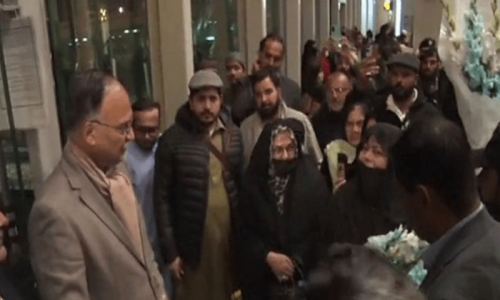MUMBAI, Jan 6: A nationwide strike by tens of thousands of Indian truckers entered its second day on Tuesday, pushing up prices of some commodities and threatening to choke supplies of fruits and vegetables.
The truckers, who are calling for cuts in taxes, tolls and diesel prices, were prepared to stay off the roads until their demands were met, said Charan Singh Lohara, president of the All India Motor Transport Congress.
“We have not even received an invitation to further talks from the government,” said Lohara, whose union says it represents six million trucks across India.
There was about 10-20 per cent of normal freight traffic in India on Monday, Lohara said.
“From today it will be a complete strike,” he said, adding farmers would also lend support to the call for cheaper diesel.
More than 70 per cent of freight in India moves by road, and truckers had benefited from a booming economy that required the transport of steel and cement for construction.
But the country’s 200,000 transport companies have been hit in recent months by a slowing economy, higher interest rates on vehicle loans and greater competition from the railways.
India cut prices of petrol and diesel on Dec 6 after crude oil tumbled, but the economy, Asia’s third largest, has shown signs of slowing amid the global financial crisis after growing at nine per cent or more in the past three years.
Economists and government advisers expect expansion to moderate to around 7 percent this fiscal year to March 31.
ADEQUATE STOCKS: While sugar futures rose on Tuesday, large retailers said they had adequate stock of fruits and vegetables for a few days.
Supplies to Maharashtra state’s main wholesale market were not entirely hit, with some deliveries made in smaller vehicles.
“The strike is total, but some retailers have their own fleets of smaller vehicles, so those are still moving,” said Mahendra Arya, a spokesman for the Bombay Goods Transport Association, which is affiliated to the All India union.
Inflation is at a near 10-month low and the truckers’ strike is not expected to have any long-term adverse impact.
“There will be an immediate impact on food prices, so we could see a temporary blip in inflation,” said Abheek Barua, chief economist at HDFC Bank.
“But since construction and manufacturing are slowing anyway, any impact will only be in the short-term,” he said.
The government, which last week unveiled a second economic stimulus package to boost sectors such as infrastructure and real estate, has said it will take action against striking truckers.
However authorities also said on Monday they were exempting truckers from paying taxes on transportation of goods and were ready to consider restructuring their bank loans.
The government, which is preparing for elections by May, also faces the prospect of a strike by officials of state-run oil firms from Wednesday.
A three-day trucker’s strike last July pushed up produce prices, and a week-long strike in 2004 slowed industrial growth.—Reuters












































Dear visitor, the comments section is undergoing an overhaul and will return soon.